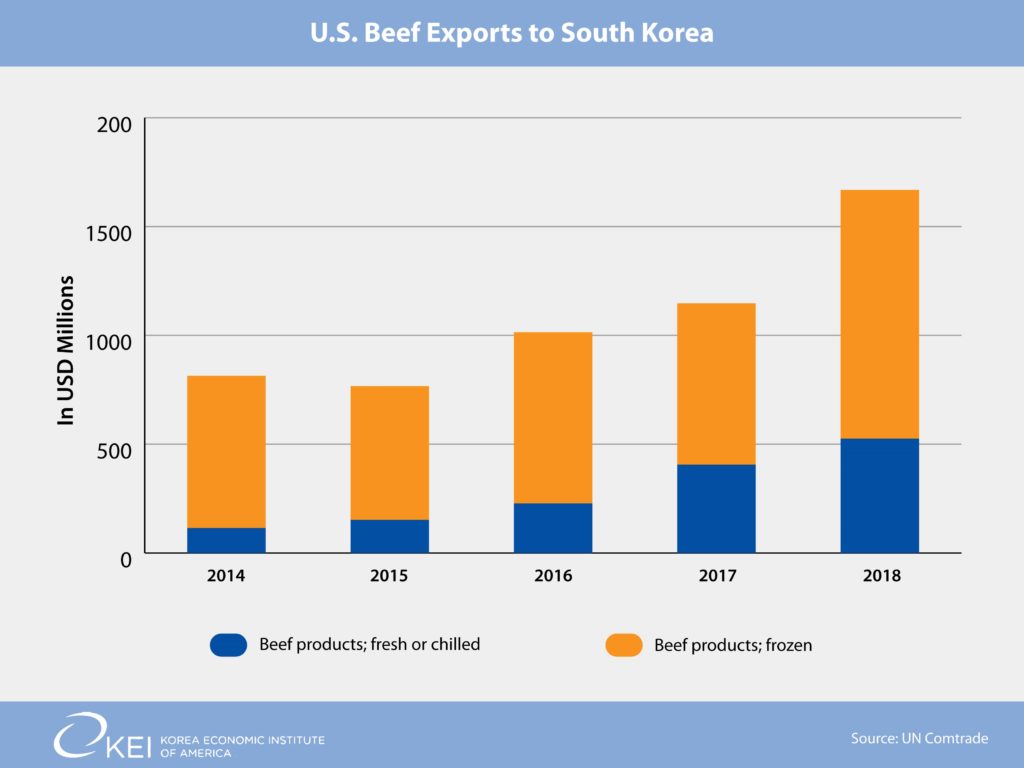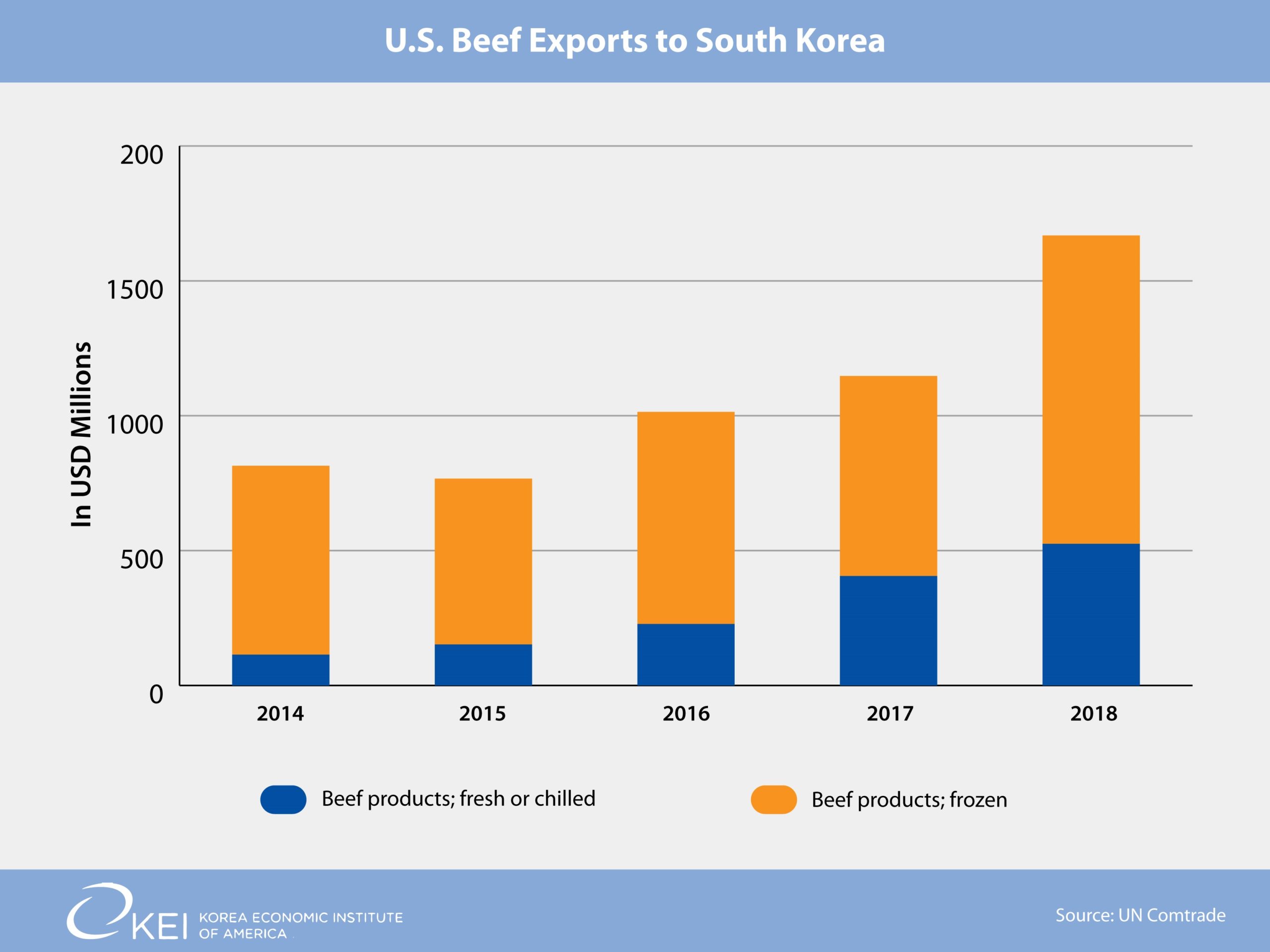The Peninsula
New U.S.-EU Deal Highlights How Important South Korea is For U.S. Agriculture

By Troy Stangarone
On August 2, the United States and the European Union (EU) announced an agreement to provide greater market access for U.S. beef to the EU.
Prior to the August 2 agreement between the United States and the EU, the EU had a ban on the production and sale of hormone treated beef dating back to the 1980s. The United States eventually won a World Trade Organization (WTO) case against the EU and the two sides reached a deal in 2009 that allowed the EU to maintain its ban on hormone treated beef but that also created a 45,000 metric ton import quota for beef that met EU standards with the intention that it would largely be filled by U.S. ranchers, but in reality has been largely filled by ranchers from other countries.
Under the new agreement, the United States will now have its own duty free tariff rate quota that will allow it to ship 18,500 metric tons annually that will rise over seven years to 35,000 metric tons. This is estimated to increase the value of U.S. exports from $150 million now to $420 million when the agreement is completely phased in.
The United States had its own beef issues previously with South Korea as a result of a case of BSE in the United States that resulted in U.S. beef being banned from South Korea. Those restrictions were partially lifted to allow boneless beef under the age of 30 months as a condition to begin negotiating the KORUS FTA only to see shipments later suspended. U.S. ranchers now operate under a commercial agreement that allows both boneless and bone-in beef under the age of 30 months to be shipped to South Korea.

Today, the United States exports nearly $1.7 billion a year in beef to South Korea, even though Seoul’s tariff on U.S. beef will not be completely eliminated under the KORUS FTA until 2027. As a country with a population of almost 52 million compared to the 508 million that live in the EU (prior to Brexit), South Korea will continue to consume more U.S. beef than much larger EU even after this agreement is in place. In fact, in 2018 the EU imported $13.5 billion in agriculture from the United States while the smaller South Korea imported $8.3 billion.
While the additional access to the EU is important for American ranchers, it demonstrates the importance of South Korea as an export partner for U.S. farmers and ranchers.
Troy Stangarone is the Senior Director for Congressional Affairs and Trade at the Korea Economic Institute of America. The views expressed here are the authors alone.
Photo from the White House photo stream on flickr Creative Commons.
